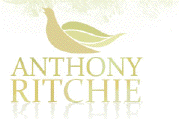

Ahua
by Anthony Ritchie, for choir and orchestra by Anthony Ritchie Opus 96
A mix of opera and oratorio, with a dramatic libretto by Keri Hulme and strong, evocative music. It incorporates elements of Maori music, and a kapahaka group contributes traditional and original music to the work. 'Ahua' tells the story of Moki, one of the first of the Ngai Tahu tribe to settle in the South Island.
- YEAR: 2000
- DURATION: 60 minutes
- TEXTS: Keri Hulme
- COMMISSIONED BY: Christchurch City Choir to celebrate the 150th anniversary of European settlement in Canterbury
- INSTRUMENTATION: for large mixed choir, solo soprano, mezzo soprano, 2 tenors, baritone, orchestra and Maori kapahaka group.
Orchestra: 2222/4231/timp, 3 perc, harp, celesta, strings - LEVEL: 4 | Challenging for professional musicians
Listen to a performance
Programme Note
I was born in Christchurch and lived the first 27 years of my life there. For most of those years I had no knowledge of Ngai Tahu or their history. I became fascinated by Maori beliefs during inspiring Religious Studies lectures given by Jim Wilson at Canterbury University, and launched into my own study of Maori music. But for all that, I had no real awareness of southern Maori. It is only recently that I have learned to say: 'Tena koutou katoa. Ko Anthony toku ingoa, ko John toku papa, ko Anita toku mama, ko Simon toku tungane, ko Judy ratou ko Jenny ko Liz oku tuahine, ko Sandy toku wahine, ko Tristan aku tama, ko Annabelle oku tamahine, No Otetahi ahau, Na reira, tena koutou katoa.'
It was tremendously exciting, therefore, to be asked to write music for a work celebrating the anniversary of the arrival of the settlers in Otetahi. Here was a chance to be involved in an exploration of the distant past: Ngai Tahu's own arrival in the South Island, pre-dating the English settlers by many years. Reading Te Maire Tau's account of Moki's life and the surrounding history opened up a whole new world to me. This was history full of conflict and struggle, passions and rivalry, and an inspiring source for a composer.
Another exciting dimension for me was collaborating with Keri Hulme. I have long admired her writing since reading The Bone People back in the late 1980s, and setting her poem He Moemoea to music. To be honest, I wondered how Keri was going to condense such a complex history into a libretto. Her solution, to have Moki on his last day on earth remembering back over the significant events in his life, was ingenious and worked very well in terms of the musical genre.
Much of the music is concerned with characterisation. The forceful and head-strong character of Moki is depicted by the orchestra early on. He is a man of action, brave and capricious; much of the life-force of the music comes from his mana, resulting in plenty of driving rhythms. On the other hand, he can be sensitive as in his duet with Marewa, singing to their sleeping daughter. Moki's arrogance lands him in trouble with two chiefly sisters, who he has slept with. His foolish boasting is reprimanded by the chorus in 'The Words are loosed', where the insults are repeated for everyone to hear.
The orchestra and choir is sometimes used to colour the images in the story. Following the Karanga near the beginning, for instance, we hear the choir announce the rising of the sun, accompanied by blazing brass and cymbals. In Moki's opening song, the 'thin line of light illuminating the islands from the north to the south' is portrayed by florid lines on flutes, harp and celesta.
One of the interesting challenges in Ahua was to combine my music with music by Te Ari's Kapa haka group. This was made more difficult by distance: at present I live in Dunedin! There is a also a big difference between Classical music and Maori music, but it is interesting and worthwhile to discover things in common, and to celebrate the differences. I want to acknowledge my collaboration with Te Ari and Te Maire as regards the music for Ahua and thank them for their input.